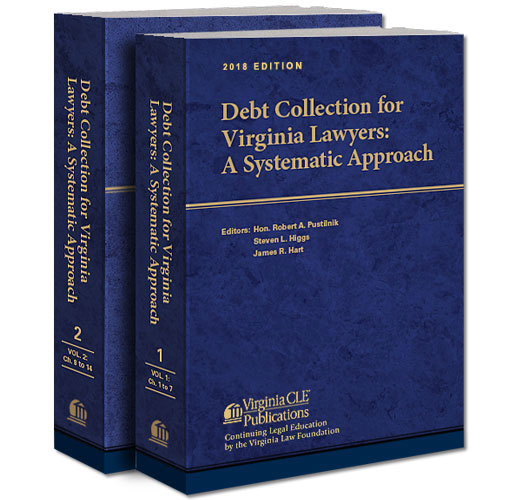Content Highlights:
- Overview of a Collection Practice
- The Collection Practice System
- Receipt of a Claim
- Financial Recordkeeping, Client Accounting, Escrow Accounts, and Fees
- Fair Debt Collection Practices Act
- Improving the Client’s Position
- Suit
- Executions on Judgments
- Attachments
- Real Property Foreclosures
- Memorandum of Lis Pendens
- Mechanics’ Liens
“The book is important because it is the only book of its kind. It is written both from the point of view of attorneys and judges. It answers virtually every question that could be asked about any area of collection law. No other text has such a wealth of case citations from federal courts at all levels, as well as state courts, including extensive discussion of relevant circuit court decisions. Armed with this text, an attorney should be able to form the best available argument on every legal issue which has ever been encountered by the authors in practice, or by the Judge from the bench.”
– Hon. Robert A. Pustilnik, co-author
This is truly a practice deskbook. Material is presented in terms of specific actions the attorney or client can take. The forms that accompany the text provide the basis for actual court filings and other communications needed to serve your clients.
The 2018 edition includes coverage through the 2018 session of the General Assembly, as well as recent case law and federal law.
Just a few of the developments covered in the 2018 edition:
- Section 8.01-229(E)(3) was amended to clarify that, despite provisions in a contract or insurance policy to the contrary, the statute of limitations is tolled upon filing of suit, and the refiling of the action is protected by the rules governing nonsuits, in response to the ruling in Allstate Property & Casualty Insurance Co. v. Ploutis.
- The amount of an appeal bond for appeals from a district court includes any amount awarded for attorney fees. Section 16.1-107, as amended in 2017.
- Where the statute provides for “reasonable” attorney fees, the court must consider a number of factors and may award attorney fees far greater than the amount of the claim. The party need not, in such cases, plead the amount of attorney fees to be claimed with specificity and may allow the issue to be resolved in post-verdict proceedings, in appropriate cases. Lambert v. Sea Oats Condominium Ass’n.
- Until a tax return is filed, the defendant’s potential refund is not under the debtor’s control and, therefore, is not the subject of a lien of fieri facias or a turnover order. Shifflet v. Latitude Properties, Inc.
- Section 43-3(C) was amended in 2018 to provide that a general contractor may not waive or diminish his lien rights in a contract in advance of furnishing any labor, services, or materials, but may, prior to or after providing any labor, services, or materials, contract to subordinate his lien rights to prior and later recorded deeds of trust.
